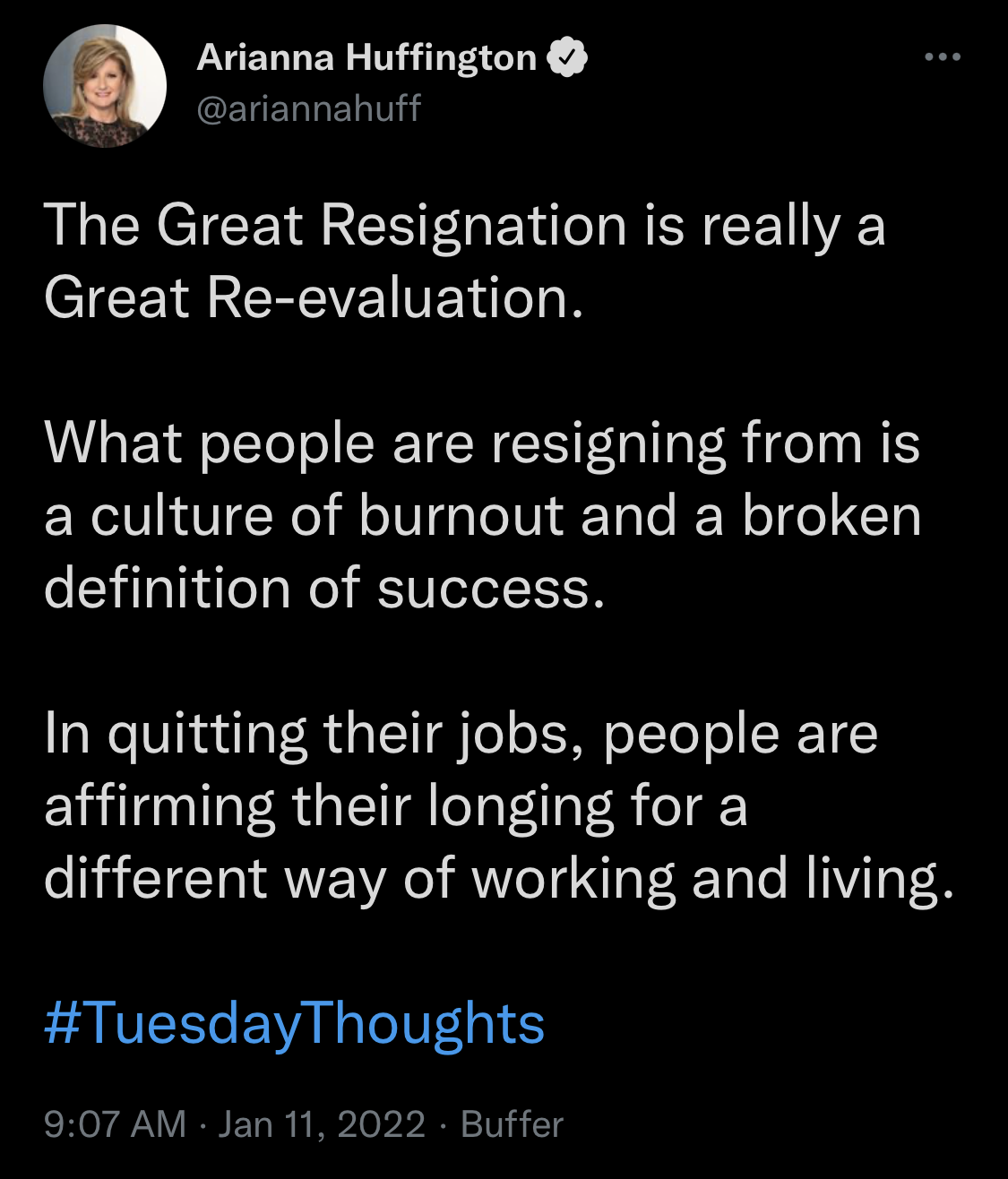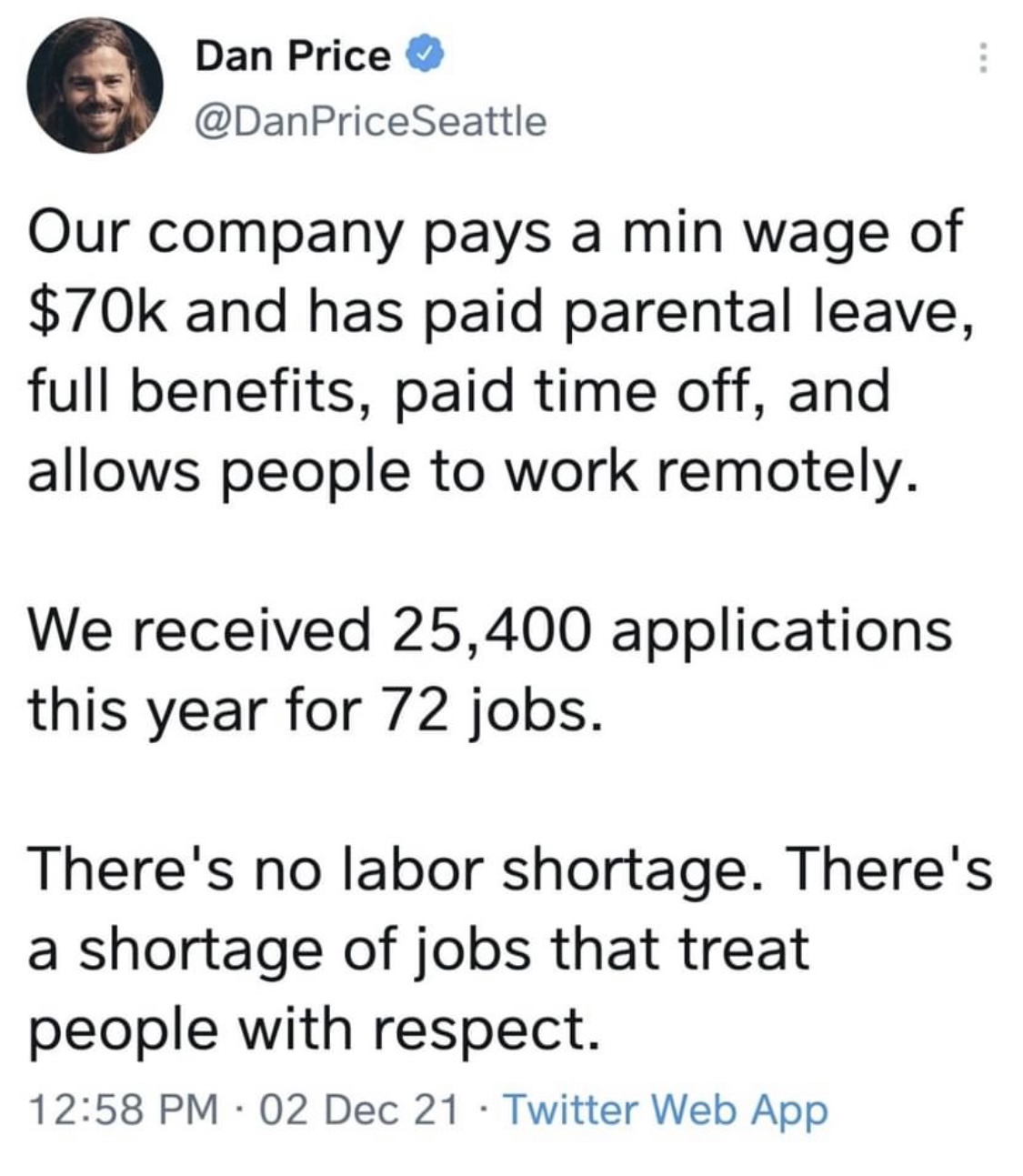Attracting and Retaining Employees in Today's Job Market
 You have seen the articles and may have experienced the phenomenon in your office. 4.4 million people (3% of the workforce) quit in September. The great resignation is what they are calling it. Now, unlike any time I can remember, people are leaving their positions in companies and, often, not returning to the workforce, either retiring early or just leaving. What that means is there are positions open everywhere, in every industry, and workers have choices. The gap is undoubtedly true in construction as we are seeing steady development everywhere, soaring in markets like Atlanta, with a workforce struggling to keep up.
You have seen the articles and may have experienced the phenomenon in your office. 4.4 million people (3% of the workforce) quit in September. The great resignation is what they are calling it. Now, unlike any time I can remember, people are leaving their positions in companies and, often, not returning to the workforce, either retiring early or just leaving. What that means is there are positions open everywhere, in every industry, and workers have choices. The gap is undoubtedly true in construction as we are seeing steady development everywhere, soaring in markets like Atlanta, with a workforce struggling to keep up.
More than ever, employers need to take steps to attain and retain employees proactively. Construction Owners are often unable to pay as much as others in the industry, such as large contractors or private firms. That means looking at other ways to show appreciation and incentivize employees. Turnover is problematic, particularly in specialized areas such as Project Management. It can take years to get a new hire up to speed, and the industry is quick to snag any capable candidate.
I can relate. Earlier this year, I left a "secure" job where I had been for fourteen years. I didn't go for more money (although I will make more) or better benefits (I have less). I had no clue where I would end up when I decided to leave; I left because it didn't offer me what I needed, simple as that. Within two weeks, I had four job offers without even sending out my resume. That is the nature of the market, and anyone can do it. (In fact, if you are reading this, unhappy, and questioning whether or not to leap, my advice is to try one more time to get what you need (whatever that may be) from where you are and, if things don't change quickly, leave. You will land on your feet. Life is too short to be unhappy where you work.)
So, what can Owner's do to retain employees? I offer the following from my own experience, talking to others leaving similar positions and reading up on the trend.
- Listen: Listen to what your employees are saying. They will tell you what they need, if there are issues, and how to keep them happy. It sounds simple yet so often missed. Don't ignore their concerns or brush them off as invalid. To them, it is valid and, even if what they say can't be implemented or is beyond your control, creating a platform for open discussion can do wonders. It should be made clear that you want to hear what they are thinking and create an atmosphere where ideas are celebrated, not discouraged.
- Be Flexible: Everyone works differently and has specific needs related to work-life balance and the criteria needed to excel. Some may prefer to work in the office, others at home. Hours of peak performance may differ from person to person as well. That is okay. Having spent over a year at home and proving that the model works, many people don't want to return to the office, or they may have other reasons (pets, childcare, etc.). Then again, many thrive in an office environment. Treating everyone the same isn't logical. Discuss with each employee what structure works best for them and why and set criteria to evaluate performance regardless of how someone chooses to perform duties. If you don't trust someone in varying situations, there are more significant issues to address.
- Incentivize: This is beyond financial incentives (although paying people what they are worth is a good start) and may differ from person to person. Some people want to pick their kids up from school, others more responsibility, projects closer to home, or work with specific clients or types of projects. Some want that corner office or even to run the department one day. Find out what motivates your employees and define a path to achieve what they seek if possible and if it isn't, let them know now. Nearly everyone in the workforce wants an opportunity for advancement, so that is an excellent place to start. Create a path and show people how to get to the next level and support them getting there. We all seek a reason to work, and the traditional employer response "to get a paycheck" is no longer enough.
- Empathize: In January, I wrote an article about empathy and its importance in the workplace. I reemphasize this again. For better or worse, the past few years have changed us and how we perceive the world around us, personal and professional. People want more and long for a place where they belong and can make a difference. We seek to be understood and a place where we are valued and appreciated. We want "realness" and for others to recognize our concerns, thoughts, and feelings. To be treated as individuals, not staff. We want to be listened to and heard (even if not always understood). We are all people dealing with things the best we can, and we seek others who see and appreciate that. Empathy can go a long way and is often more valuable than a raise or anything else on this list.
- Create An Environment People Enjoy: Most people seek a dynamic and supportive atmosphere to grow a career. People value respect, trust, openness, and the opportunity to be celebrated as individuals. Creating a "home away from home" is the best way to keep someone engaged and happy. If someone's work environment isn't comfortable, they will seek one that is. There are lots of options.
 There is no secret to the perfect job or work environment, and people have different needs and circumstances to consider. Still, as employers (Construction Owners), it is in your best interest to discover what people seek and offer that to the best of your ability. Above is what I desire in a workplace and, from discussing with others, it would be a good list to start from when considering how to attract and retain employees. At a minimum, understand there are many options available, and you need to offer something to set you apart from the competition (of which there is a lot).
There is no secret to the perfect job or work environment, and people have different needs and circumstances to consider. Still, as employers (Construction Owners), it is in your best interest to discover what people seek and offer that to the best of your ability. Above is what I desire in a workplace and, from discussing with others, it would be a good list to start from when considering how to attract and retain employees. At a minimum, understand there are many options available, and you need to offer something to set you apart from the competition (of which there is a lot).
I left salary off of this list because this isn't the main determining factor for many, including myself, and, in many cases, Owners can't compete. Also, from what I have observed, people who work merely to take home a paycheck (regardless of the size) are often unhappy if their work doesn't offer the basics outlined above. So, Construction Owners can compete; we have to listen, be flexible, incentivize, empathize, and create an environment people enjoy. If you invest in and prioritize your employees, they will want to stick around.
Wes Berry
Executive Project Manager
Georgia State Construction & Interiors Consultants
